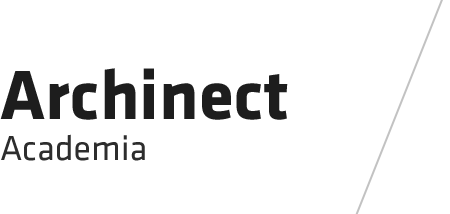
Burbank, CA | San Diego, CA
Woodbury School of Architecture San Diego will launch the Master of Science in Architecture, Landscape + Urbanism program in Fall 2012.
The three-semester MSArch L+U degree equips architects with the skills to lead through both the design of the built environment and the crafting of policy. A degree for individuals holding a professional degree in architecture or landscape architecture, the program rethinks the boundaries of architectural practice. Immersed in global issues critical to urban growth—contested territories, cultural differences, globalization, and social and environmental justice—students develop the skills required to assess, envision, and lead spatial change in both established and developing territories.
We sat down with MSArch L+U director Rene Peralta.
Rene, you're a Tijuana native. You've studied in both San Diego and London and have lectured around South America and the United States. What compels you to keep returning to research the Tijuana/San Diego border?
When I came back from London I realized that I had to look for an alternative practice model. I was very interested in critical practice ideas—with a focus within the architecture discipline—but I realized that the instruments to practice architecture in that form, at least in Tijuana, were not available. When I mention instruments I mean economic, political, cultural and technological. While theory still plays an important role in my Tijuana practice, we like to experiment with ideas different from architecture to be better able to understand the world we live in, especially in Latin America. Therefore, I work as an architect, but also engage in other creative mediums, such as film, writing, and urban research. The Tijuana/San Diego region is a great working case study in urban development and a grounds to develop new ways to redefine progress and the future of cities… that’s why I returned to this region.
Urbanism is a hot-topic among architects and architecture students these days, but it often focuses on developed cities. The research you do with the MSArch L+U program looks at the space between two cities and between two countries. What are the lessons to learn from this contested territory?
The border region operates as an interface of exchange. Concepts from both sides infiltrate or infect every other system of development. For example, while San Diego is concerned with democratization of public space, and confronts issues of migration and diversity within community development, Tijuana is in need of infrastructural urbanism promoting tactics that operate in very volatile urban conditions. It’s an exciting place to work in and understand the differences and the paradoxical effects that make this region unique. There is no hierarchy nor system better than the other one; both urban systems have a lot to learn from each other. Even if the urban and economic goals tend to be opposed, we have to realize that TJ/SD share geography, a condition that can enable the two cities to participate in bi-national planning proposals, as once recommended by urban planner Kevin Lynch in the 1970s.
The MSArch L+U program at Woodbury San Diego teaches skills—such as policymaking and GIS mapping—not traditionally connected to architecture, landscape architecture, and design. How is this expanded toolkit applied to design studio?
We want our graduates to be proactive in designing and realizing projects at an urban scale with social and public benefit. The skills taught in our program are meant to position the student in organizational leadership in public policy and in the identification of social capital. As the practice of architecture changes more and more graduates are out of work, our approach not only intends to teach students to be socially responsible but also to enable them to work for themselves and find the strategies to pursue self-initiated work as part of their future practice.
MSArch L+U is joining a group of experts in this field from the Center for Urban Economics and Design (CUED), formed by lawyers, economists, and theorists. Jim Bliesner, one of the experts from CUED has experience in community development in the US, Latin America and Asia, and teaches public policy in the program. We cover organizational strategies and then integrate mapping techniques via Geographical Information Systems (GIS) in order for students to visualize the site components and context for a project and to make informed design decisions. Geospatial technologies work as an interface to interpret many different types of data sets (social, geographical, infrastructural, etc.) as information for design.
How can students enrolled in the program use these research, design, policy and leadership skills to work with communities in San Diego and other places around the world?
Traveling around Latin America in the last two years, I saw that social associations as well as governmental institutions are in need of professionals with design and organizational skills. There is a need within disadvantaged community groups, who need infrastructure and other public amenities, to be able to find financial resources and government support. Also, there are institutions (government and academic) that are in need of staff that can act as facilitators between communities in need and larger social organizations. As I visit different cities across the US and Latin America, I’ve found that the situations described above are not particular to any part of the world.
Who should apply to MSArch L+U?
This is a fast paced program scheduled over 3 semesters, so incoming students need to have design skills from the onset. We focus on public policy skills from the point of view of a design program. However, the design field is extensive and we are looking for applicants from landscape architecture, urban design, architecture and environmental design.
Click for application information. Or contact San Diego administrative director Debra Abel.
No Comments
Block this user
Are you sure you want to block this user and hide all related comments throughout the site?
Archinect
This is your first comment on Archinect. Your comment will be visible once approved.